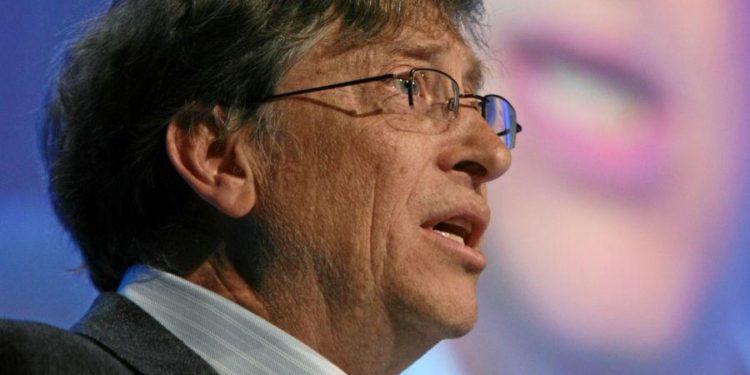Microsoft supremo Bill Gates has distanced himself from bitcoin (BTC) buying, dismissing fellow American entrepreneur Elon Musk’s own crypto moves – while talking up a digital money or payments infrastructure that to some BTC advocates will sound very familiar.
In an interview with Bloomberg, Gates claimed that he is “not bullish” on bitcoin, explaining,
“I think people who may not have as much money to spare get drawn into these manias. So I’m not bullish on bitcoin. My general thought would be [that] if you have less money than Elon, you should probably watch out.”
The comments come just days after Gates told CNBC much the same thing about BTC – and “digital money.”
He told the media outlet that he does not own any bitcoin and is not “short bitcoin.” However, he added,
“I do think moving money into a more digital form and getting transaction costs down, that’s something the Gates Foundation does in developing countries.”
Meanwhile, in the most recent interview, he once again mentioned the foundation and its work with a “digital currency.”
“But those are things where you can see who’s making the transaction. So digital money is a good thing. There’s a different approach that’s a local currency, unattributed and you know deals with all the money laundering and terrorism type regulations and yet gives you the convenience and the low cost of a transaction.”
Some might point out that bitcoin is decidedly digital and has been touted as a solution to providing finance solutions to millions of unbanked individuals in the developing world.
However, what is that “digital money” Gates is talking about?
Per the Gates Foundation, Gates’ and his wife Melinda’s charitable organization, the solution he has in mind involves the “development of pro-poor, digital payment systems.”
The foundation calls these “mechanisms by which individuals and businesses actually buy and sell. These systems can foster competition, drive innovation, and accelerate the development of digital financial products and services customized for the needs of low-income communities.”
The foundation claimed that interoperability is a key feature of the ecosystem it seeks to introduce in developing countries, adding that it must also be secure and safe from money laundering, advantageous when compared to cash, “free of cost for all or most people” and must involve the participation of the private sector, “which must be able to develop sustainable business models to support their service offerings.”
Again, the parallels with BTC and other crypto projects, some may suggest, are striking.
The foundation added that it is also proactive in the regulatory field, where it encourages governments to set out “licensing requirements, know-your-customer policies, and agent regulations, which encourage […] innovation and competition.”
The organization concluded,
“Financial inclusion is not just about opening systems and lowering barriers. While some risks diminish, new risks and challenges emerge. Supervising a wider range of market participants and protecting millions of new consumers is no small task, and this is an important element of our work.”
____
Learn more:
– Stablecoins May ‘Penetrate Non-Crypto Markets’ & Surpass USD 100B in 2021
– Not Only Bitcoin Price Is Changing During This Bull Run
– Crypto in 2021: Bitcoin To Ride The Same Wave Of Macroeconomic Problems
– Crypto Adoption in 2021: Bitcoin Rules, Ethereum Grows & Faces Rivals
Credit: Source link





















